Babak Jalali’s Fremont: The Weight of Survivor’s Guilt
Isa Yehya
Since October 7th of 2023, Palestinian photojournalist Motaz Azaiza has documented the horrors of Israel’s bombardment of Gaza through the lens of his camera. Over the course of 107 days, the 25-year-old’s ceaseless coverage of the cruel realities of war — airstrikes on homes and hospitals, mass communication blackouts, catastrophic food and water shortages, a lack of essential medical supplies and aid, the death and displacement of loved ones — has led to him becoming a key reporter on the ground in Gaza.
Prior to his photojournalistic efforts in 2023, Azaiza’s Instagram account had only garnered a modest following. Now, he has captured the attention of over 18 million people worldwide with his gut-wrenching and eye-opening images depicting atrocious violence. Azaiza’s work has earned him widespread recognition and accolades. He was named “Man of the Year” by GQ Middle East, with editor Ahmad Ali Swaid stating, “The Palestinian photojournalist became a global figure, a vehicle of resilience, and the embodiment of hope for the people of Gaza and for the rest of us around the world.” Additionally, one of his photographs, entitled “Seeing Her Through My Camera,” was listed amongst TIME’s Top 10 Photos of 2023. The piece depicts a young girl trapped under rubble — the remains of what was once her home — in Al Nusairat refugee camp after an Israeli airstrike. This only further cemented Azaiza’s status as a leading voice for Gaza and a prominent figure in the realm of photojournalism. His ability to capture the raw essence of human suffering and resistance has made him an indispensable advocate for justice and awareness on the global stage; a position he could have never anticipated.
Israel’s destruction of Gaza shows no end in sight, with the Palestinian death toll passing 25,000 and even more people left displaced, starving, severely wounded, and buried under debris. Notably, Israeli airstrikes have killed Palestinian members of the press at an alarming rate. According to the Committee to Protect Journalists, as of January 30th of 2024, 85 Palestinian journalists and media workers have been killed since the war began. As casualties only continue to increase in numbers, journalists in Gaza are left with the agonizing decision to either die trying to expose the world to the truth or leave their homeland for their own safety with no certainty of ever being able to return.
On January 23rd of 2024, Azaiza posted a video on Instagram announcing that he ultimately had made the decision to evacuate out of Gaza. In the video, he removes his blue press jacket, tattered and stained after enduring months of war, and says, “I’m sorry, but inshallah, hopefully soon I’ll come back and help to build Gaza again.” Subsequent videos posted on his Instagram Stories showed him boarding a Qatari military airplane from Egypt and arriving in Doha. “Should I be happy?” was the caption for one of the videos taken from inside of the aircraft, highlighting the moral dilemma faced by the few Palestinians who are given authorization to escape Gaza; the conflicting feelings of relief at the prospect of freedom and immeasurable guilt for leaving others behind in the midst of ongoing brutality.
In an interview with journalist Anelise Borges for Al Jazeera, Azaiza expressed sentiments evocative of survivor’s guilt while describing his recent evacuation of Gaza. According to the National Library of Medicine, Survivor’s guilt is defined as a post-traumatic response that “arises in people who have been exposed to, or witnessed, death and have stayed alive, leading to emotional distress and negative self-appraisal. Often, survivors feel responsible for the death or injury of others, even when they had no real power or influence in the situation.” Even after losing over 15 relatives, most of whom were children, to an Israeli attack targeting his family home in the Deir al-Balah refugee camp on October 11th of 2023 — not to mention countless friends, colleagues, and neighbors in the following months — Azaiza persisted in his efforts to shine a spotlight on the people in Gaza for as long as he could bear. During his Al Jazeera interview, Borges asks if his dreams have changed since the beginning of the war. Azaiza solemnly responds:
“I lost interest in my dreams… You have to live a normal life after what I saw. After what I lost… After dear friends that I lost. I was spending a lot of time with them. The places that I was going to in Gaza — the cafes, the beach — everywhere is destroyed. Everywhere in Gaza is destroyed. I lost a lot of people. So I keep feeling guilty for it. For the clean water I drink now here… No drones above my head trying to kill me. Not seeing human parts after Israeli airstrikes. Not seeing destruction. I feel guilty for this. I wish for all my people to live like this. What I see now. So my brain will stay there until Gaza’s back to life.”
Azaiza’s response reveals a profound reassessment of his outlook on life in the aftermath of the war’s onset. His work has undoubtedly shed light on the devastation faced by the Palestinian people, amplifying their voices and experiences amid the chaos of war. His photojournalism serves as a crucial testament to their endurance in the face of relentless violence and discrimination. Despite his significant social, political, and cultural impact, Azaiza has been left to grapple with a deep sense of guilt and loss after his evacuation from Gaza. The nature of his role as a photojournalist exposed him to immense trauma and peril as he worked tirelessly to capture impactful images and stories from the frontlines. This immense burden of responsibility and non-stop exposure to tragedy likely contributed to his feelings of survivor’s guilt; feelings that will most likely persist for a very long time.
Survivor’s guilt is a pervasive phenomenon among refugees as they navigate the process of settling into new communities after leaving their homes, families, neighbors, and friends behind. Whether they were forced to flee or personally made the decision to leave, refugees often carry with them a sense of remorse for surviving while others suffer. However, despite the universality of these experiences, refugee stories — particularly those of Middle Eastern refugees — often go overlooked in popular culture and media. Middle Eastern communities across the globe face systematic discrimination and marginalization, leading to their stories frequently being re-framed to align with dominant cultural narratives. This misrepresentation perpetuates prevailing political agendas and stereotypes, obscuring the realities of refugee experiences and hindering efforts to foster understanding and empathy. It is imperative for refugees to be able to actively participate in reclaiming and reshaping narratives about their own experiences with displacement, migration, trauma, and cultural assimilation. Azaiza’s personal reflections on his feelings of survivor’s guilt and his struggles with settling into a new reality, as well as broader conversations about advocating for the representation of Middle Eastern refugee stories, resonate with the themes explored in British-Iranian filmmaker Babak Jalali’s 2023 film, Fremont.
Fremont draws its title from the City of Fremont in California’s San Francisco Bay Area. Often referred to as “Little Kabul,” the district has become home to one of the largest populations of Afghan immigrants and Afghan-Americans in the United States, with waves of refugees gravitating towards it in search of community. Shot in luminous black-and-white, Jalali and his co-writer, Carolina Cavalli, confront the experience of the Afghan diaspora through the eyes of the film’s protagonist, Donya Massoudi (Anaita Wali Zada). Donya is an Afghan refugee living in Fremont after her evacuation from Kabul, which she was granted because of her role as an interpreter for the United States Army. Haunted by the fate of those unable to escape Afghanistan, as well as the stigma of being labeled a traitor for working alongside the American military, the young woman struggles to assimilate into her new environment. Plagued by traumatic memories of war, she faces numerous sleepless nights. As Donya stares blankly at the ceiling from her bed, a war in her own mind rages on, leaving her to question if she is truly deserving of her new life when people back in her homeland are dying. Her internal conflict echoes the uncertainty of Motaz Azaiza’s contemplation post-evacuation from Gaza: “Should I be happy?”
Donya’s survivor’s guilt, which manifests as anxiety, loneliness, and restlessness, presents itself in two distinct forms: dissociative episodes throughout the mundanity of her everyday existence and chronic insomnia upon returning home from work every evening. What she calls home is a unit in an apartment complex predominantly occupied by fellow Afghan immigrants. Despite the supposed comfort of this familiarity, living amongst Afghans in Fremont proves to be a challenging experience for Donya. Her new neighbors serve as a reminder of her former life, with many ostracizing her due to the circumstances of her evacuation from Afghanistan. However, amidst this isolation, one neighbor stands out as an exception. Afghan refugee and insomniac Salim (Siddique Ahmed) sees Donya for who she is, setting aside any judgements about her past. He offers her solace and wisdom during their shared sleepless nights outside of the apartment complex, cigarettes and coffee mugs in hand. Salim’s unconditional acceptance and guidance provide Donya with a semblance of reassurance in the foreign, perplexing landscape of Fremont.
Both Donya and Salim find themselves stuck on endless waitlists in order to speak with a medical professional about obtaining prescriptions for sleeping pills. When Salim finally secures a consultation, he generously offers his appointment slot to Donya so she can attend in his place. Seizing the opportunity, she successfully persuades the eccentric psychiatrist, Dr. Anthony (Gregg Turkington), to provide her with pro bono counseling sessions. In her subsequent sessions with Dr. Anthony, Donya begins to unravel the root causes of her insomnia. She is prompted to reflect on her inability to sleep at night, particularly in light of her recent relocation to the United States and the plight of her family in Afghanistan. However, Donya struggles to articulate her feelings with Dr. Anthony, especially when he probes her about missing her family back home or her looming sense of guilt. Her silence in response to his inquiries speaks volumes as she averts her gaze, unable to confront her inner turmoil. As the counseling progresses, Donya gradually opens up, recounting the violence she witnessed firsthand. She acknowledges, “I know I’m very lucky.” Dr. Anthony questions her choice of word “lucky.” He suggests that her perception of luck may be influenced by underlying trauma, indicating that she likely suffers from Post-Traumatic Stress Disorder, a condition common among his other patients who fled from war-torn Afghanistan: “They’re haunted by bad thoughts, nightmares.”
Donya’s unease with the Afghan community in her immediate neighborhood drives her to seek employment outside of Fremont. Explaining her decision to Dr. Anthony, she says, “I thought it would be good to be out of Fremont half of the day. I wake up, I see Afghans. I go to sleep, the last people I see, they’re Afghans. And I thought it would be lovely to see Chinese people sometimes.” Donya’s daily routine centers around her commute to and from her job at a family-owned fortune-cookie factory in San Francisco’s Chinatown. In Fremont, everyone communicates with her in her native Dari. However, venturing beyond this familiar environment exposes her to a diverse array of languages and cultures, with an emphasis on Cantonese around her workplace. Donya welcomes the diversity of San Francisco, viewing it as a break from the cultural hegemony she experiences in Fremont. As she interacts and bonds with people from different backgrounds, her feelings of guilt, heightened by her interactions within the Afghan community, appear to dissipate.
Within the walls of the fortune-cookie factory, Donya is tasked with writing fortunes for the cookies she packages and distributes after an older colleague unexpectedly passes away. This newfound opportunity becomes an outlet for her amidst her search for belonging and validation. Her messages to the world, delivered via fortune-cookie, express a range of sentiments, from being overly optimistic and uplifting to cryptic and deeply revealing of her psyche: survivor’s guilt intertwined with a longing for human connection. Despite producing increasingly personal, bizarre, and even meta prophecies, such as one that reads, “The fortune you seek is in another cookie,” she somehow manages to retain her position as a fortune writer. Through this process of cookie-induced self-introspection, Donya grapples with the cognitive dissonance stemming from her mixed emotions, further unraveling the layers of her inner world.
During one of their late-night meetings, Donya discovers Salim awake on their balcony, smoking a cigarette. She confides in him about her ongoing battle with sleeplessness, despite finally being prescribed sedatives. Donya poses a thought-provoking question: “Do you ever feel guilty when you think of beautiful things?” Salim hesitates before admitting, “I feel guilty even when I don’t think about beautiful things.” She then follows up with another question: “Do you think it’s normal to think about love when there are people still in Kabul risking their lives?” Salim takes a drag from his cigarette before offering his insight: “As long as your heart bears the burden of suffering and as long as you don’t forget the past and you don’t become an asshole, falling in love is your right.” Salim’s response provides Donya with a seismic sense of liberation from the emotional burden she carries. His perspective reminds her that she should not deny herself love and happiness due to circumstances beyond her control. Salim concludes their conversation by saying, “Fall in love first and worry about the rest later.” His words provide Donya with a moment of catharsis, granting her permission to finally embrace her desires.
Donya’s solitude and uncertainty within an unfamiliar world comes to life through Jalali’s hypnotically contemplative, deceptively funny, and quietly poignant filmmaking style, complemented by the dreamlike stillness of Laura Valladao’s monochromatic cinematography. Fremont skillfully navigates the nuances of her condition by blending vignettes of deadpan humor with an overarching tone of melancholy, reminiscent of works of directors like Jim Jarmusch, Aki Kaurismäki, and Paweł Pawlikowski. The film uses this mode of storytelling — equally moody and wistful as it is wryly amusing and absurdist — to situate its protagonist as a piece of a larger puzzle alongside fellow outcasts seeking to find their place in the “melting pot” that the United States has come to represent. Fremont captures the inherently uncanny nature of social interaction amongst the displaced, disoriented, sleep-deprived, misunderstood, and traumatized, portraying exchanges that are simultaneously bittersweet and stilted. Through its evocative narrative and visual style, the film offers a poignant exploration of identity, love, and desire in a world marked by displacement and conflict.
Anaita Wali Zada, a first-time actor who herself fled from Afghanistan in 2021, brings a natural sincerity and warmth to her role as Donya. Even as she delivers intentionally vacant and impassive lines, Donya’s desire to find purpose and companionship shines through her measured, straight-faced expressions and restrained dialogue. In the film’s final act, Donya’s fortune-writing gig leads her to a chance encounter with an endearingly awkward auto mechanic named Daniel (Jeremy Allen White). At the fortune-cookie factory, Donya finds herself impulsively writing her phone number on one of the fortunes, alongside the message “Desperate for a dream,” and slips it into a cookie. To her surprise, she ends up receiving a text message from someone in Bakersfield, prompting her curiosity. The mystery recipient of her call to the universe asks her to drive to their location so they can meet. Though initially hesitant to meet a stranger in an unfamiliar place, she becomes increasingly intrigued by the prospect of someone showing interest in her. She receives an address to go to and is instructed to ask for “The Deer” upon arrival. On her way to Bakersfield, Donya stops at an auto repair shop where she meets Daniel. Despite their evident attraction to each other, she abstains from engaging in deeper conversation with him. When he offers her a cup of coffee, she insists on paying for it, but he rejects the money, stating that, “It’s on the house.” As she prepares to take her leave, he adds, “If you ever come back, it’ll be on the house, too.”
Once in Bakersfield, Donya is caught off guard when she finds herself at a pottery shop. Upon asking for “The Deer,” a shop employee simply hands her a statue of a deer. It is revealed that her phone number was not received from her fortune-cookie. Instead, one of her bosses at the factory had given her number to the employee to arrange for her to pick up the statue for her office. On her somber drive back to Fremont, Donya finds herself returning to Daniel’s auto shop. She presents him with the deer statue, which he graciously accepts, and she agrees to have another coffee with him. It is during her time with Daniel that the viewer sees her smile for the first time. The climactic moment of Donya and Daniel’s tentative meet-cute unveils an unforeseen romantic tenderness — two lost souls drawn together by their circumstances — that the characters themselves cannot fully comprehend or verbalize. Although Fremont’s narrative maintains its ambiguous qualities until the very end, Wali Zada’s performance is able to convey the true ending of Donya’s story. She has found somewhere she wants to be, with someone she wants to be with. Her ever-present guilt finally washes away and is replaced with satisfaction once she sees that there can be a future for her in this new reality.
Fremont largely flew under the radar when it premiered at the Sundance Film Festival on January 20, 2023. While the film may not have garnered widespread attention, its portrayal of Donya’s quest for belonging offers a powerful narrative that speaks to the experiences of many refugees across the globe. In a time where stories like Motaz Azaiza’s are increasingly being brought to the forefront, Fremont serves as a reminder of the strength of those who have been uprooted from their homes. Through Donya’s journey, viewers are forced to confront the harsh realities faced by refugees, including the weight of survivor’s guilt and the longing for acceptance. Even in her silence, Donya’s story serves as a microcosm of a larger experience of displacement and trauma. However, refugee stories, like Donya’s, are not just tales of hardship and loss; they are also stories of courage, perseverance, and the enduring power of the human spirit. In depicting her gradual transformation and eventual acceptance of possibility and hope, Fremont celebrates the resilience of refugees and the profound capacity for love to transcend borders.
Fremont is currently available for streaming on MUBI.
*Image: Anaita Wali Zada and Jeremy Allen White in Fremont. | Music Box Films
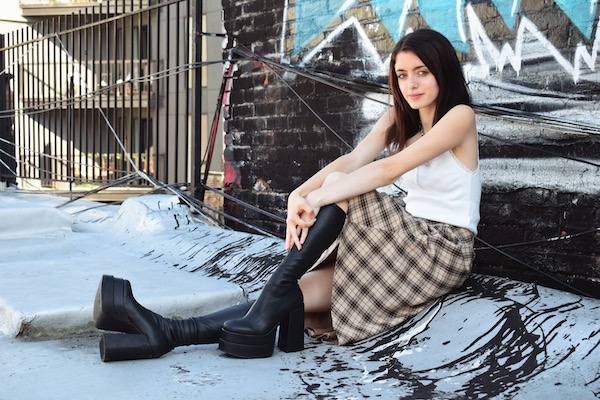 Isa Yehya is a cultural critic, essayist, and editor whose work centers on aesthetics, popular culture, film & television, and intersectional feminism in media. She holds a Bachelor of Arts degree in Critical and Visual Studies from Pratt Institute. Her undergraduate thesis, The Kawaii Revolution: The Power of Cuteness, the Hyper-Feminine, and Hello Kitty, is in the process of being prepared for publication.
Isa Yehya is a cultural critic, essayist, and editor whose work centers on aesthetics, popular culture, film & television, and intersectional feminism in media. She holds a Bachelor of Arts degree in Critical and Visual Studies from Pratt Institute. Her undergraduate thesis, The Kawaii Revolution: The Power of Cuteness, the Hyper-Feminine, and Hello Kitty, is in the process of being prepared for publication.
She currently lives and works in Brooklyn, NY.
©Literal Publishing. Queda prohibida la reproducción total o parcial de esta publicación. Toda forma de utilización no autorizada será perseguida con lo establecido en la ley federal del derecho de autor.
Las opiniones expresadas por nuestros colaboradores y columnistas son responsabilidad de sus autores y no reflejan necesariamente los puntos de vista de esta revista ni de sus editores, aunque sí refrendamos y respaldamos su derecho a expresarlas en toda su pluralidad. / Our contributors and columnists are solely responsible for the opinions expressed here, which do not necessarily reflect the point of view of this magazine or its editors. However, we do reaffirm and support their right to voice said opinions with full plurality.
Posted: February 21, 2024 at 11:33 pm


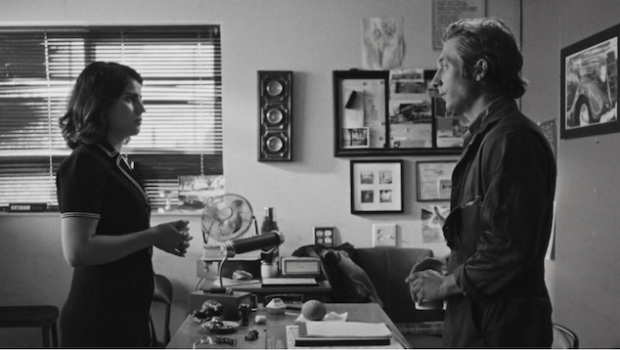
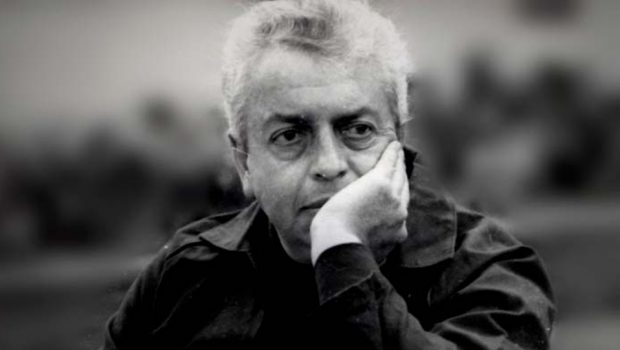
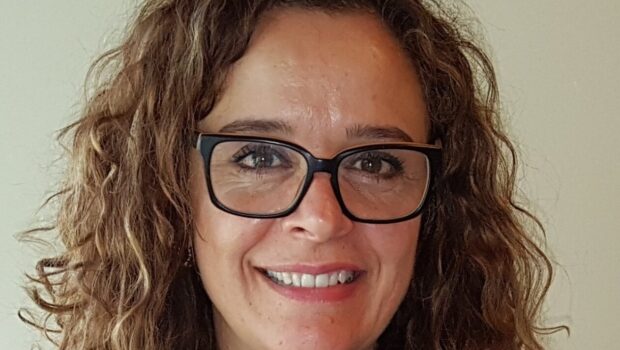
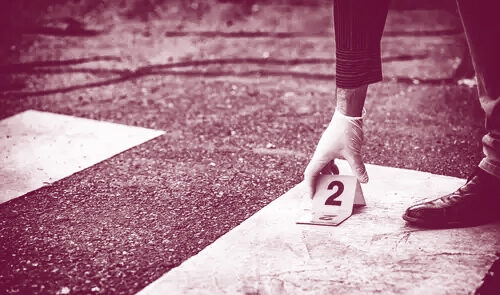

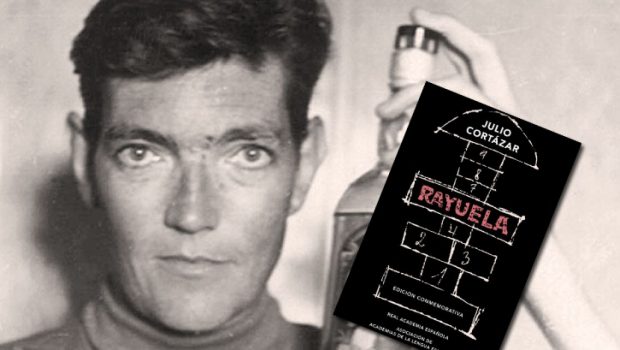
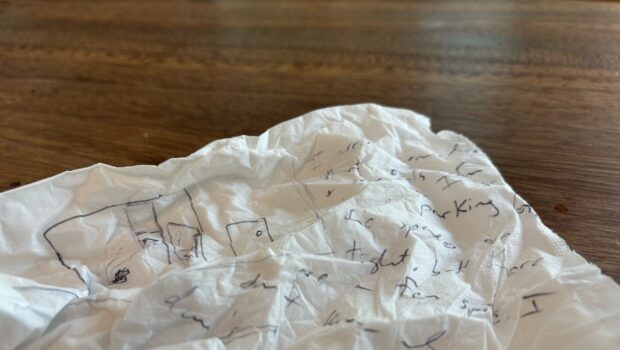
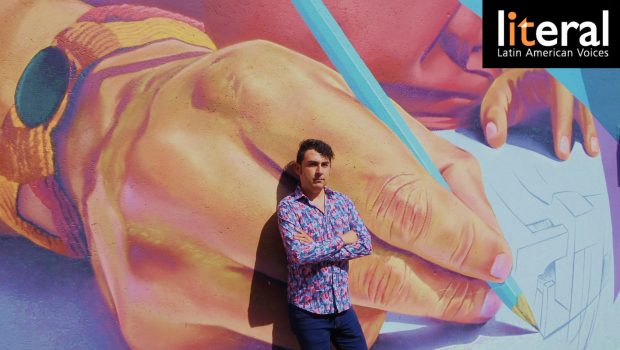
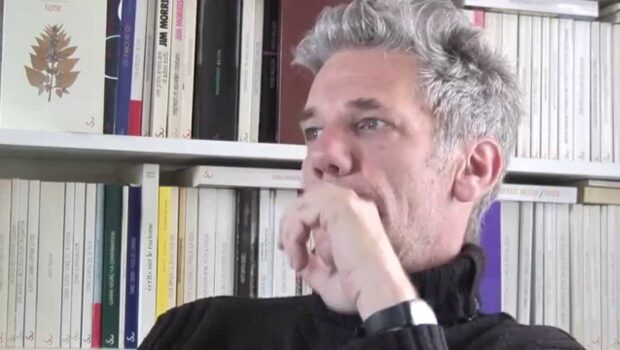
Beautiful read.